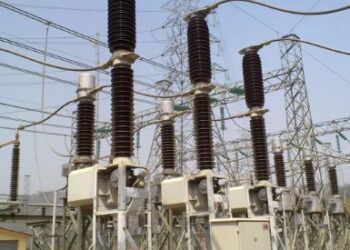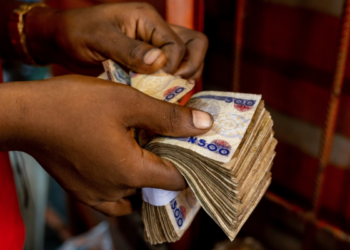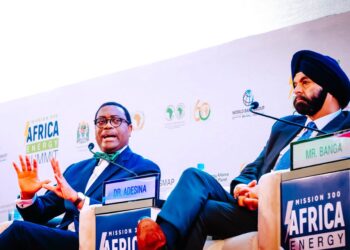In the quiet community of Edemaya in Akwa Ibom, Udo Ekanem tends to the land his family has farmed for generations.
It’s his most valuable asset, providing food and income for his household.
Yet, despite its worth, Udo cannot use the land to secure a loan to diversify into poultry rearing because he lacks formal documentation. Without a Certificate of Occupancy, his land is seen as an informal asset, rendering it invisible to financial institutions.
Udo’s situation is not unique—millions of Nigerians face the same barriers, unable to unlock the economic potential of their land.
With the Federal Government’s recent partnership with the World Bank, Nigeria now can change this narrative.
By formalizing land ownership, the initiative could empower people like Udo, turning their ancestral lands into tools for growth and economic transformation.
Formal vs. informal land ownership in Nigeria
In Nigeria, formal land ownership involves registering titles and obtaining Certificates of Occupancy (C of O), granting legal recognition and security. This enables landowners to use their property for loans or investments, fostering economic growth.
Conversely, informal ownership dominates, relying on customary arrangements, verbal agreements, or inheritance without legal documentation. While culturally entrenched and accessible, it leaves owners vulnerable to disputes, evictions and limits the economic utility of land. Without formal titles, such properties cannot be leveraged for financial opportunities or government support.
Details of the Partnership with the World Bank
The Federal Government in September 2024 announced a landmark partnership with the World Bank aimed at registering all land titles in Nigeria within five years.
- This initiative, led by the Ministry of Housing and Urban Development, seeks to address the challenges posed by untitled land, which accounts for over 90% of land parcels in the country.
- By formalizing land ownership, the partnership aims to unlock vast economic potential, including an estimated $300 billion in dead capital, ensuring clarity and security in land ownership while transforming Nigeria’s land administration system.
- A key component of this partnership involves collaborating with state governments to register, document, and title all land parcels. This collaboration is designed to bring landowners, communities, and regional authorities into the formal land system, ensuring inclusivity and widespread participation.
- By providing clear and secure land ownership records, the initiative aims to unlock development opportunities, foster sustainable land use, and attract local and foreign investment.
In November 2024, the Ministry revealed plans to establish a National Land Digital System (NLDS), a modern digital registry that will facilitate the efficient and secure verification of land titles.
Housing Minister Musa Dangiwa highlighted that the NLDS will play a pivotal role in enhancing transparency, reducing fraud, and boosting investor confidence.
- The partnership’s ambitious five-year goal aligns with the broader objective of increasing formal land transactions to over 50% within the next decade, compared to the current rate of less than 10%. This initiative is expected to protect property rights, promote equitable land governance, and drive economic growth across the country.
- As the project progresses, the Federal Government and the World Bank are finalizing the operational framework and investment commitments needed to meet these objectives.
Collaborations with state governments will be critical in ensuring the success of this initiative, providing a robust foundation for sustainable development and economic transformation in Nigeria.
Learning from Rwanda
Rwanda is one of the African countries that have successfully carried out widescale land formalization initiatives.
- The Rwanda Land Tenure Regularization (LTR) initiative, launched in two phases, sought to enhance land tenure security, encourage economic growth, and address land conflicts, particularly for women.
- Phase I (2005-2009) focused on developing a Strategic Roadmap (SRM) for land management, which was adopted by the government in March 2008. Phase II (2010-2013) aimed to register and issue titles for 10.3 million land parcels across the country.
- The process utilized community-based techniques, such as aerial photography and public adjudication. Key innovations included training para-surveyors and leveraging open-source software.
- The project, funded by DFID and other donors, had a total cost of £42.2 million and successfully established a Land Administration System.
This model demonstrates the potential of large-scale land registration to address ownership disputes, foster investment, and drive economic growth.
Expert perspectives
Engr. Babatunji Adegoke, General Secretary of the Nigerian Institution of Civil Engineers, Lagos State Chapter, emphasized the importance of land registration in fostering economic growth.
“Accurate land registration is not just about titles; it’s about creating a database that aligns infrastructure development with population growth and demand,” he said.
According to him, data from formal land registration can prevent infrastructural mismatches, such as building roads in sparsely populated areas while neglecting densely populated zones.
Ekpo Sun-myke, a certified town planner with the Nigerian Institute of Town Planners (NITP) and the Town Planners Registration Council of Nigeria (TOPREC), highlighted the critical role of land formalization in urban development.
“Formal land registration reduces disputes, fosters investment, and enhances urban planning,” he explained.
Sun-myke pointed out that informal systems, while culturally relevant, often hinder the enforcement of zoning laws and sustainable city planning.
Both experts also noted the challenges inherent in Nigeria’s land formalization plan.
- Adegoke pointed to the country’s geographic diversity, saying, “Surveying land in remote or challenging terrains, such as mountainous regions and waterlogged areas, requires specialized equipment and skilled professionals. Without these, progress will be slow.”
- He added that the lack of skilled personnel in many parts of Nigeria exacerbates the problem, as traditional surveying methods are time-consuming and expensive.
- Sun-myke highlighted the conflict between Nigeria’s customary land tenure systems and formal legal frameworks.
“Customary land tenure often clashes with statutory laws, creating a vacuum in ownership clarity,” he noted. He emphasized the need for policies that integrate traditional systems into formal frameworks, ensuring widespread participation in the registration process.
- According to him, educating communities on the benefits of formal ownership could mitigate resistance and enhance the uptake of the government’s initiative.
- Another expert, a Quantity Surveyor with over a decade of experience, who craved anonymity, argued that technology will be the linchpin for the success of Nigeria’s land formalization plan
“Leveraging drones, Geographic Information Systems (GIS), and Remote Sensing Technologies can significantly reduce the time and cost of mapping land parcels,” she stated.
- The Quantity Surveyor also stressed the importance of public-private partnerships, noting that private firms could play a critical role in deploying advanced technologies for land surveys.
- Despite these challenges, experts agreed on the transformative potential of the partnership between Nigeria and the World Bank.
“This initiative could mark the beginning of a new era in Nigeria’s land administration,” said Adegoke.
However, he cautioned that success would require a deliberate and sustained effort from all stakeholders, including the government, private sector, and local communities.
Outlook
The Federal Government’s partnership with the World Bank marks a significant step towards addressing Nigeria’s land formalization challenges. If implemented effectively, the initiative could unlock substantial economic benefits, increase property security, and foster sustainable urban planning.
- However, achieving the ambitious goal of registering all land parcels within five years will require overcoming technical, administrative, and cultural obstacles.
- Experts recommend a multi-pronged approach: simplifying the registration process, leveraging advanced technologies, training skilled personnel, and integrating customary systems into formal frameworks.
- Drawing lessons from successful initiatives like Rwanda’s LTR program, Nigeria has an opportunity to transform its land sector into a catalyst for economic growth.
By fostering collaboration among all stakeholders and prioritizing transparency, Nigeria can pave the way for a more equitable and prosperous land ownership system.





















